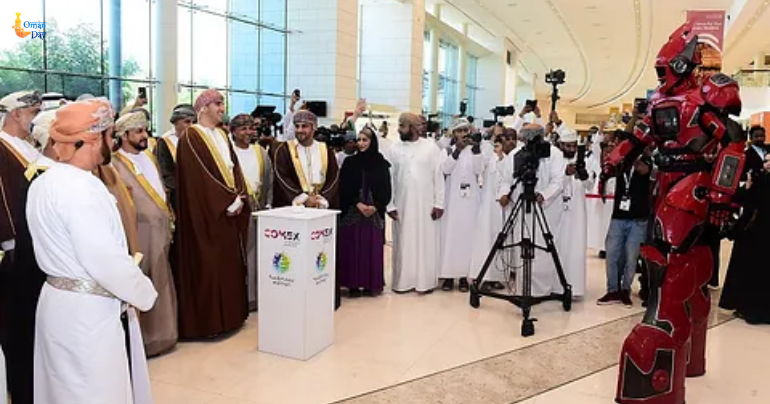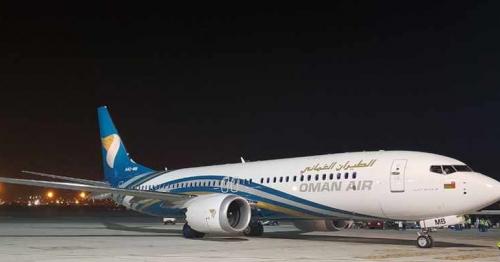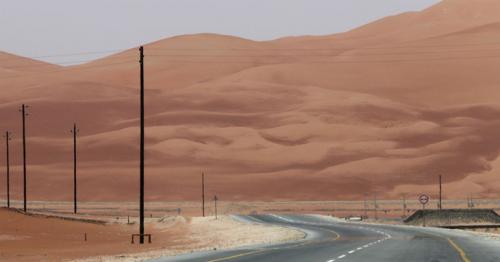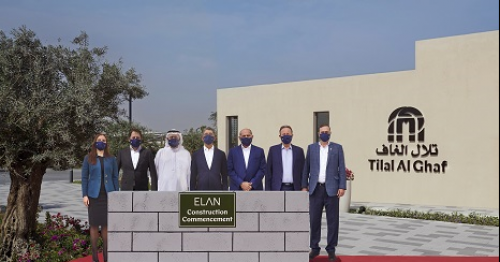Exclusive: Oman is digitally transforming business events
Oman has serious exhibitor and visitor appeal combined with all the key elements to attract business events, such as being easily accessible, strategically located, and a warm hospitality culture. It also hosts an affordable range of hotel rooms, and has a rapidly expanding infrastructure to support the needs and demands of global event organizers.
But is Oman keeping pace with digital transformation sweeping the globe? We had a conversation with Said Salim Al Shanfari – Chief Executive Officer, Oman Convention & Exhibition Centre (OCEC), where we asked about OCEC’s embrace of technology to attract an increasingly digitally oriented audience.

1- How are business events changing in the region to meet an increasingly digitized world and tech savvy businesses and consumers?
The global events industry is being revolutionised by digital transformation. From the planning stages of event marketing, communicating information and reaching audiences, to event guest speakers and actual events that propel a focus on innovation and disruption technologies. There are smaller transformations that people will be very familiar with, like online ticketing and event apps, but there is a bigger digitalisation process being adopted that is driving the principal change. The technological overhauling of traditional processes is allowing event organisers to deliver customised events and reach fragmented audiences that are spread across the globe. It’s also facilitating knowledge exchange by connecting expert speakers from remote locations and allowing for larger audiences through virtual attendance.
2- Taking Oman Convention & Exhibition Centre (OCEC) as an example, what digital initiatives and trends are being adopted at the centre?
Our venue is a future-proof venue and thus capable of weaving digital initiatives into events as per request, including AI technology. We’re also upgrading our website to provide a 360° virtual-reality tour of the venue, as well as interactive elements for receiving feedback. Soon, guests will be able to use smart registration technology to register for events which will dramatically reduce queue times and allow for a smoother event experience. OCEC will also be introducing augmented reality technology; this can be used during events to create a more immersive experience, or during the planning stages of an event when organisers are mapping layout and setup.

3- What type of business events will stand the test of time and always attract an audience?
At OCEC, we feel that any event can have a secure future ahead of it, provided there’s a willingness to adapt. The seamless inclusion of technology in business events will become mandatory for sustainability and longevity. Firstly, because the revolution is well underway already and it’s not slowing down, and secondly because the level of connectivity provided by technology is necessary for reaching today’s audiences. It’s also becoming increasingly important for organisers and venues to offer a high level of customisation in events, which is being made easier through innovation. Ultimately, there must be a level of creative thinking that drives the use of technology for events, which is something we pride ourselves on at OCEC.
Budgets are also going to play an important role in the longevity of events. Keeping up with technology can be an expensive pursuit, as can the process of customisation, and event organisers will need to ensure their expectations and budgets align if they want a successful event. With that said, event budgets are increasing as industries continue to recognise the positive impact that business events have on growth.
4- The remote presence technology (telepresence) and its effects on the industry- Can attendees participate in holographic or telepresence forms?
Telepresence technology has been a great aid to events, connecting industry leaders around the world and helping with knowledge sharing. By supporting these technologies, we allow organisers to reduce their costs and improve the environmental impact of their event through less consumerism. It can also greatly improve the quality and success of an event by supporting a wider portfolio of speakers and essentially a more comprehensive event. Of course, these technologies can be expensive to begin with, but they are only becoming cheaper as they mature. With the undeniable added benefits of the technology and the reduced costs elsewhere, the shift is becoming less of a financial burden for organisers.
5- What type of events that are most suited for today's digital nomads?
We’re seeing an increasing number of people embrace the ‘location independent’ lifestyle. Technology can be a massively disruptive factor, but it opens doors like never before. Today’s digital nomads can connect with events from remote locations, especially as events are becoming less bound by strict agendas and schedules. We see much more video content and live streaming being used to deliver information and connect to wider audiences, particularly those who cannot, for various reasons, attend the event in person. We also find that these audiences use technology to network and connect with other virtual attendees and are particularly responsive to technology that allows them to visualise and understand the topic more diversely.
6- Type of Tech used in events such as AR, VR, MR, other simulations, geo-networking needed to not only deliver info but also maximize networking opportunities?
These technologies are creating deeply immersive event experiences for attendees. Telepresence allows people to virtually attend events and interact with other event-goers in real time. It also allows guest speakers in other countries to give presentations and host Q&A sessions in a way that feels that they are really part of the event. AR and VR technologies are changing the way people experience products and spaces, but it can also be used for networking – by combining facial recognition technology and overlaying attendee data relevant to other attendees. Also, AI technology can allow for real-time translation, opening up events to an audience that might otherwise have been inaccessible, or too logistically complicated to engage, purely because of language barriers. As a future-proof venue, OCEC is capable of implementing these technologies and delivering truly interactive events.
7- What new approaches to traditional event content delivery being applied at OCEC that move towards being experiential, are AI-led, or more hands on, and others?
Our plans for future augmented reality technology will entirely change the way content is delivered and received. For example, an interior design event can allow attendees to view fully-customised furniture and interior setups in real space, that might previously have only been viewable through catalogues, or computer modelling programmes, and the power of imagination. There are plenty of other technologies that are shifting content delivery away from traditional methods – VR has been used by the automobile industry to showcase the spectacular places the car can take you; brands have also used VR to expose customers to development and production processes; and AI technology has been used to support one-on-one training workshops. The options that these technologies provide are limitless and continue to provide deeper understanding of brand and product, as well a more memorable and impactful event experience.
tag: oman , omannews , exhibitor , visitor , omanday , muscat , business , digital , events
Share This Post






